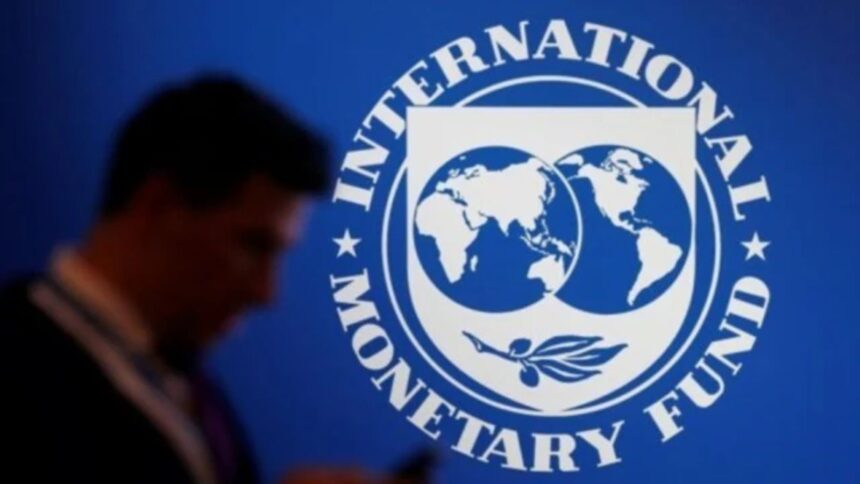As part of its nod for two loan tranches worth $2.4 billion on May 9 for Pakistan, the International Monetary Fund (IMF) has introduced 11 new structural benchmarks, including parliamentary approval of budget in line with the loan facility, publishing a governance action plan, and notifications of electricity tariff rebasing and gas tariff adjustments, to be met by the country before its next review of the Extended Fund Facility (EFF) in September.
In a staff country report issued on May 17, the Fund has also cited increased “enterprise risks” for Pakistan amid rising tensions with India, adding that there could be “reputational risks” also if there is a “perceived misuse” of Fund disbursement.
“Enterprise risks have increased. The rising tensions between India and Pakistan, if sustained or deteriorate further, could heighten enterprise risks to the fiscal, external and reform goals of the program. Reputational risks could also come from any perceived lack of evenhanded or if there was a perceived misuse of Fund disbursements,” the IMF said.
The release of the IMF report came a day after India’s Defence Minister had stated that in current times, any financial assistance to Pakistan is no less than terror funding. The Minister had specifically pointed out that the IMF should reconsider its to the neighbouring country.
The IMF is financing a $7-billion aid package to Islamabad that was approved in September 2024. The ongoing 37-month long EFF program of the IMF consists of six reviews over the span of the bailout.
In its report released Saturday, the Fund said the Pakistani authorities have reiterated their strong commitment to the program, which is “designed to help restore economic stability, build resilience through stronger reserve buffers, and advance reforms to create stronger and inclusive growth”. The Washington-headquartered multilateral agency sought to clarify that disbursements under the EFF are dedicated to build reserves, adding the facility’s fiscal and reserve goals (including floors on social spending) limit the space for non-priority spending and the use of reserves to finance imports.
“Careful Fund communication will be essential to underscore the Fund’s neutral role and avoid misperceptions about its lending activities,” the Fund said.
Though the IMF’s report includes a supplement incorporating updates on recent economic developments and the program performance, it stated that these recent developments do not alter the thrust of the staff appraisal. The recent updates included by the IMF have taken note of the significant rise in tensions between Pakistan and India after the April 22 attacks. “So far, the market reaction has been modest with the retaining most of its recent gains and spreads widening moderately,” it said.
The 11 new structural benchmarks introduced by the Fund have been linked to fiscal, governance, social, monetary and financial parameters along with metrics to be met in energy sector and trade, investment policy and deregulation. As per the new norms, Pakistan will be required to ensure achievement of fiscal objectives such as parliamentary approval of FY26 in line with IMF staff agreement to meet program targets by end-June 2025.
The country will also need to adopt legislation to remove the cap on the debt service surcharge by end-June 2025 and liberalise trade and increase vehicle affordability by through submission of all required legislation for lifting all quantitative restrictions on the commercial importation of used motor vehicles (initially only for vehicles less than five years old) to parliament by end-July 2025.
Pakistan has also been asked to bring out notifications of the annual electricity tariff rebasing and gas tariff adjustments by July 1, 2025 to maintain energy tariffs at cost recovery levels. It will also have to adopt legislation to make captive power levy ordinance permanent by end-May 2025 to promote uptake of electricity grid usage and incentivise, the IMF said.
Rest of the conditions have to be met with a deadline beyond September 2025 such as the condition to prepare a plan by end-December 2025 to fully phase out all incentives in relation to Special Technology Zones and other industrial parks and zones by 2035 to provide a level playing field for investment.
The IMF has also asked the Pakistan government to prepare and publish a plan by end-June 2026 outlining the government’s post-2027 financial sector strategy, outlining the institutional and regulatory environment from 2028 onwards.
On May 9, the Executive Board of the IMF had completed the first review of Pakistan’s economic reform program supported by the EFF arrangement, allowing for an immediate disbursement of around $1 billion, bringing total disbursements under the arrangement to about $2.1 billion. In addition, the IMF Executive Board had under the Resilience and Sustainability Facility (RSF).
India had abstained from voting in the Board meeting as it raised concerns over the efficacy of IMF programs for Pakistan given its “poor track record” and also on the possibility of “misuse of debt financing funds for state-sponsored cross-border terrorism”, as per an official release by the Ministry of Finance, Government of India on May 9.
Before the meeting, India’s Foreign Secretary Vikram Misri had said that the Fund’s Board should look “deep within” and take into account the facts before generously bailing out the country.








